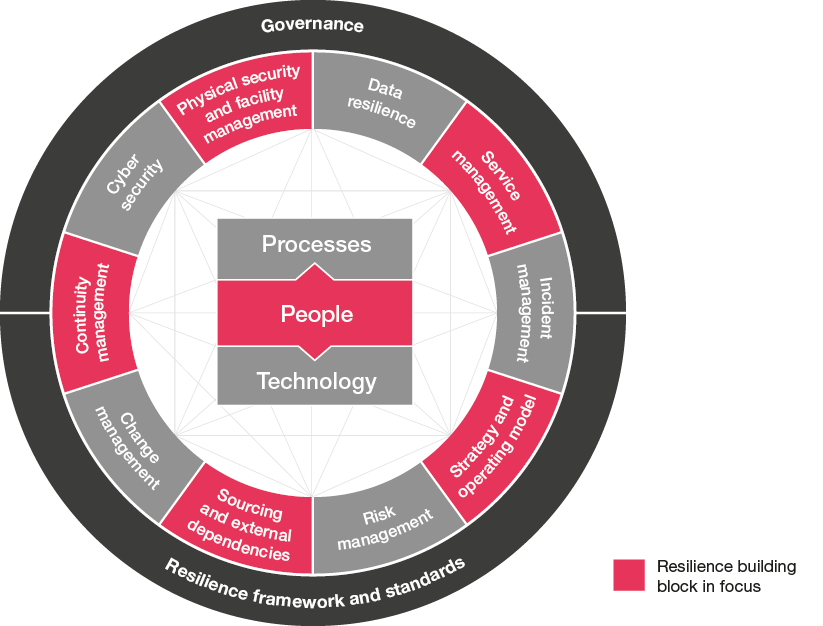{{item.title}}
{{item.text}}

{{item.text}}
The accelerating spread of the novel coronavirus disease (COVID-19) across the globe is above all a human tragedy affecting the lives of thousands of people and disrupting families and communities alike. Current research suggests that the infectious COVID-19 disease is highly transmissible and can affect anybody that is exposed to the virus.
Today’s highly interconnected economy facilitates not only the global mobility of goods, people and information, but also sparks the risk of globally spreading infectious diseases, as the current coronavirus outbreak demonstrates. As the international response continuous to develop on an unprecedented scale – ranging from a ban on events to the lockdown of entire cities and the closure of borders – the economic impact of COVID-19 is starting to unfold. Declining demand in various industries as well as the disruption of supply chains has led to the largest sell-off on global markets since the financial crisis of 2008.
Adopting a risk perspective, companies need to closely monitor and respond to the risks arising from the COVID-19 pandemic:
1) Significant number of key employees being unavailable
2) Key location being unavailable
3) Critical supplier being unavailable
First and foremost, the coronavirus disease represents a threat for the workforce. If the number of infected and quarantined people continues to rise, a significant number of employees could be temporarily unavailable. In combination with far-reaching government instructions, such as restrictions on mobility or the lockdown of entire regions, companies are facing the imminent risk of key locations being unavailable or a critical supplier being unavailable.
Resilience means being able to maintain operations even in stress situations, like the current coronavirus pandemic. A crucial step in building up resilience is to identify and prioritise critical business products and services that are key to your clients. Following a backwards engineering approach, the supporting processes, supporting people, third-party supplier and IT infrastructure can subsequently be determined.
Starting with people as the factor most impacted by COVID-19, the figure below highlights the building blocks of the PwC resilience framework that are in focus in times of pandemic threats.
To remain resilient and ride out the current COVID-19 crisis, companies need to prepare and execute a set of coordinated and proportionate response measures designed to minimise disruption and ensure continuous business operations.
In hectic situations like this, preparation is key. Based on a company’s resilience framework and aligned to existing business continuity management plans, a designated disease outbreak management plan helps to navigate the crisis. But just planning is not enough. A feasible plan almost always requires adjustments to the operating model, as well as enhanced infrastructure and equipment, and should be tested as the final stage of operationalisation.
Once the crisis hits, companies are required to take proportionate yet effective measures to limit the novel coronavirus’ negative impact on their activities and workforce. However, it is important to evaluate the effectiveness and operational impact of any proposed response measure, considering the specific circumstance at the given time. A cross-functional response team should be mobilised to deal with the multifarious challenges posed by COVID-19:
Protecting your workforce:
How can you ensure the health of your people?
Maintaining your operations:
How can you facilitate remote working while warranting critical on-site operations?
Strengthen your supply chain:
How can you secure and diversify your supply chain?
Securing liquidity:
How can you be ready to respond to a liquidity squeeze? chain?
Ensuring compliance:
How can you prevent compliance breaches in exceptional times?
Mobilising a cross-functional response team:
How can you set up an effective and agile response team?
Mobilising a cross-functional response team:
How can you set up an effective and agile response team?
Although crises represent a threat to your company and your employees, they also provide an opportunity to revise your resilience framework. Even in the midst of a crisis, companies need to look ahead and start expanding and refining their resilience capabilities to make sure they are better prepared for similar incidents in the future.
Based on our experience, we have identified the following catalysts to boost your resilience:
1) Resilience by design
2) Continuous learning
3) Resilience by default culture
